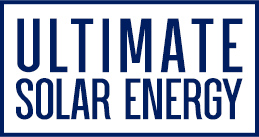Q CELLS solar panels: the complete review
Q CELLS is headquartered in Seoul South Korea and Thalheim, Germany and is one of the world’s largest solar panel manufacturers. Thanks to an appealing combination of high quality and low prices, it’s also an increasingly popular choice for solar shoppers.
NOTE: As of early 2020, Hanwha Q CELLS has rebranded to Q CELLS.
The best way to be confident in your solar investment is to thoroughly review the product options available to you. To make your solar research process easier, Ultimate Solar Energy has developed Q CELLS reviews. As the leading online marketplace for homeowners are considering solar,
How Q CELLS solar panels compare to other panel manufacturers
There are four key metrics that you should review as you evaluate solar panel quality: efficiency, performance, warranties, and price. USE has developed Q CELLS reviews for each metric to help make your solar decision easier. We’ve also created a comparison of Q CELLS solar panels against other leading panel manufacturers that are frequently featured in offers to homeowners and businesses shopping for solar.
Q peak Q Power and Q Prime efficiency
The term “solar panel efficiency” refers to how well a solar panel captures sunlight and converts it into useful electricity. In the same conditions, a high-efficiency solar panel will produce more electricity than a lower-efficiency panel of the same size. For this reason, a higher efficiency rating is generally preferable.
The efficiency of your Q CELLS solar panels will vary depending on the specific model that you choose for your system. Across the full Q CELLS product line, you can get solar panels with anywhere from 17.1% to 19.6% efficiency. Overall, most Q CELLS panels fall into the middle-of-the-road efficiency range for solar, but the panels that have 18% efficiency or higher can be considered “high efficiency.”
Q Power performance (temperature coefficient)
For this portion of Q CELLS reviews, we use the temperature coefficient to evaluate solar panel performance. The temperature coefficient is an indicator of how well your solar panel can handle less-than-ideal conditions. Solar panels, like other electronic equipment, perform better when they are kept cool (ideally around 25° C/77° F). The temperature coefficient tells you how much your panel’s performance will change during hot sunny summer days.
For every degree above 25° C (77° F), your solar panel’s electricity production will decrease by its temperature coefficient. For example, the Q CELLS Q.POWER-G5 280 panel has a temperature coefficient of -0.4%/°C. This means that, if the panel’s temperature increases by one degree from 25° C (77° F) to 26° C (79° F), its electricity production will decrease by 0.4%. If its temperature increases all the way to 35° C (95° F), electricity production will reduce by 4%.
Your solar panels will likely see more than a few hot and sunny days over the course of each year, so ideally, they will have the lowest temperature coefficient possible. Q CELLS panels offer a temperature coefficient ranging from -0.40 to -0.35.
Warranties
Whether you’re buying a TV, a car, or solar panels, the manufacturer should stand behind their product with a strong warranty. A solar panel’s materials warranty (sometimes referred to as the product or equipment warranty) is a guarantee from the manufacturer that they will replace your panel if it fails as a result of manufacturing defects or environmental issues.
Most solar panel manufacturers offer a 10-year materials warranty, but some higher-end solar panels come with a 12, 15, 20, or even 25-year warranty. Q CELLS previously offered a 12-year warranty against any defects in their solar panels, but now offer an industry-leading 25 year-warranty on newer models.
Q CELLS solar prices: How much do Q CELLS solar panels cost?
For many homeowners, the final decision around the solar equipment you choose rests on cost. The total price you pay for a solar energy system with Q CELLS panels will vary depending on the other equipment (such as inverters and mounts) used in the installation, as well as the characteristics of your roof.
To identify the range of prices for Q CELLS systems, we analyzed quotes including Q CELLS solar panels that homeowners received from installers. Most Q CELLS systems are typically priced between $2.53 and $3.25 per watt, which makes Q CELLS one of the best values on the market for home solar.
This means that, for an average 6 kW system, your gross cost (before you subtract any tax credits or other incentives) would be anywhere from $15,180 to $19,500. There are plenty of state-level solar incentives and rebates that can help you reduce upfront costs.
Q CELLS solar panels may not offer industry-leading efficiency or performance, but their price to quality ratio makes them a great value for many homeowners who are considering solar. While they don’t offer the best warranty in solar, their 12-year warranty is still above the industry standard. Overall, there are plenty of compelling reasons to consider Q CELLS panels for your home solar installation.
How to find the best price on Q CELLS solar panels
The best way to determine whether Q CELLS solar panels are the best solar panels for your home is to review multiple quotes with different solar equipment options before making a decision. When you compare all of your options on the Ultimate Solar Energy, you’ll find the right combination of price and quality that meets your needs.

